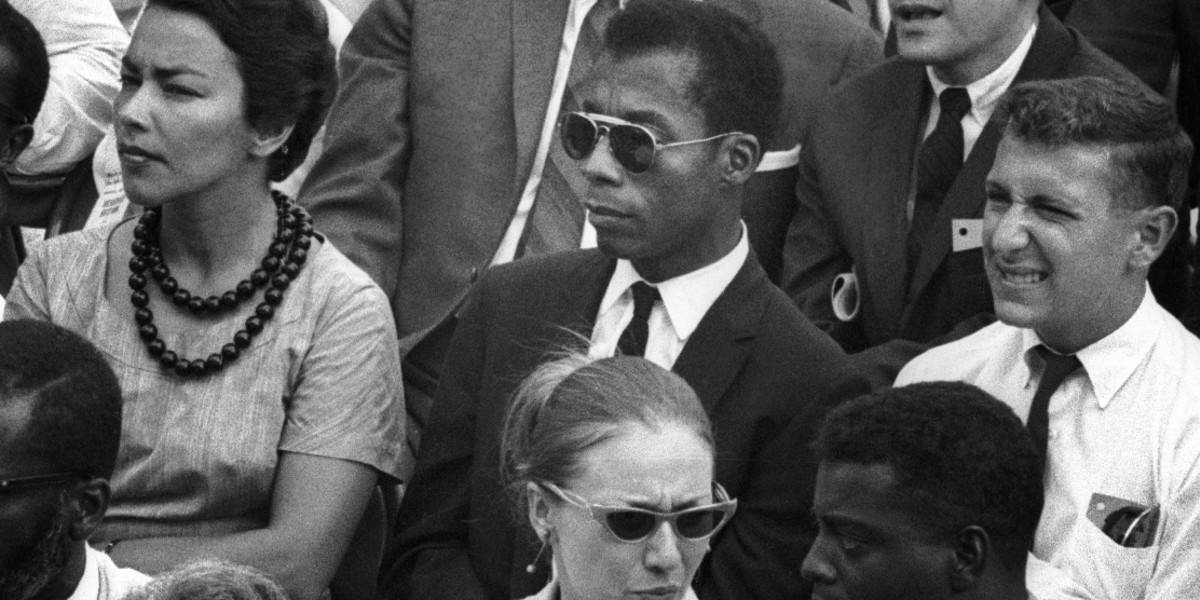 I have always known what it means to be Black, but being Black in America was something I had to discover. As a middle-class Black girl born and raised on the South Side of Chicago to parents who deeply valued education, I lived in a bubble of sorts. All types of literature and films about Black history and pride were available to me, and the spaces where I spent my childhood, my elementary and high schools, summer programs and my neighborhood were full of all types of Black people. My mother had subscriptions to Ebony, Essence, and Jet, and my father on a night out, would dress regally in Nigerian lace; gold glittering both himself and my mother. I’d learned of Civil Rights and had even experienced racism myself; though discussed briefly and forgotten quickly, when I stepped over the threshold of my house. This world that my parents had so diligently forged for their eldest dark-skinned daughter was promptly shattered when I arrived in New York City for undergrad. It was there that I truly discovered what it means to be Black in America.
I have always known what it means to be Black, but being Black in America was something I had to discover. As a middle-class Black girl born and raised on the South Side of Chicago to parents who deeply valued education, I lived in a bubble of sorts. All types of literature and films about Black history and pride were available to me, and the spaces where I spent my childhood, my elementary and high schools, summer programs and my neighborhood were full of all types of Black people. My mother had subscriptions to Ebony, Essence, and Jet, and my father on a night out, would dress regally in Nigerian lace; gold glittering both himself and my mother. I’d learned of Civil Rights and had even experienced racism myself; though discussed briefly and forgotten quickly, when I stepped over the threshold of my house. This world that my parents had so diligently forged for their eldest dark-skinned daughter was promptly shattered when I arrived in New York City for undergrad. It was there that I truly discovered what it means to be Black in America.
Black pain is old; swirling around tens of dozens of lifetimes; James Baldwin wrote about Colin Kaepernick kneeling during the National Anthem before Kaepernick was even born, he described the Rodney King beating and Ferguson half a century before either event occurred. That’s because the history of being Black in America is not new. It is old and worn and painful; just as exhausting today as it was yesterday. As I’ve been a witness to the murders of Philando Castile and Sandra Bland among so many others, James Baldwin was witness to his own journey in America, atrocities that made him feel both isolated (forcing him to retreat to Europe at times) and weary.
In his heartbreaking documentary, “I Am Not Your Negro,” Haitian filmmaker Raoul Peck, examines the story that James Baldwin never finished writing. “Remember This House” was to be a sweeping narrative exploring the lives and journeys of three pivotal men in our history; Medgar Evers, Malcolm X, and Martin Luther King Jr. These exceedingly different men who Baldwin knew well and loved, refused to give into the isolation and invisibility cast over Black people in this country. As a result, none of these men lived to see the age of forty.
Continue Reading at Shadow and Act.

 Growing up, prison seemed like an abstract concept to me, one reserved for “Law & Order” episodes and select family members who would be absent every other Christmas or Thanksgiving holiday. It wasn’t until I arrived in college in a class on Black Urban Studies, that I was educated about the mass incarceration that occurs in this country. I watched the 1998 documentary “The Farm: Angola, USA,” and read Michelle Alexander’s “The New Jim Crow: Mass Incarceration in the Age of Colorblindness.” It was through these two mediums that the system of dehumanization and oppression was revealed to me. I distinctly remember feeling horrified that the prisoners of Angola were required to pick cotton as a part of their daily tasks. Slavery was, after all, long ago abolished. However, I soon learned and continued to learn that nothing ever really goes away; it’s merely reinvented into a more easily digestible package ripe for public consumption.
Growing up, prison seemed like an abstract concept to me, one reserved for “Law & Order” episodes and select family members who would be absent every other Christmas or Thanksgiving holiday. It wasn’t until I arrived in college in a class on Black Urban Studies, that I was educated about the mass incarceration that occurs in this country. I watched the 1998 documentary “The Farm: Angola, USA,” and read Michelle Alexander’s “The New Jim Crow: Mass Incarceration in the Age of Colorblindness.” It was through these two mediums that the system of dehumanization and oppression was revealed to me. I distinctly remember feeling horrified that the prisoners of Angola were required to pick cotton as a part of their daily tasks. Slavery was, after all, long ago abolished. However, I soon learned and continued to learn that nothing ever really goes away; it’s merely reinvented into a more easily digestible package ripe for public consumption.